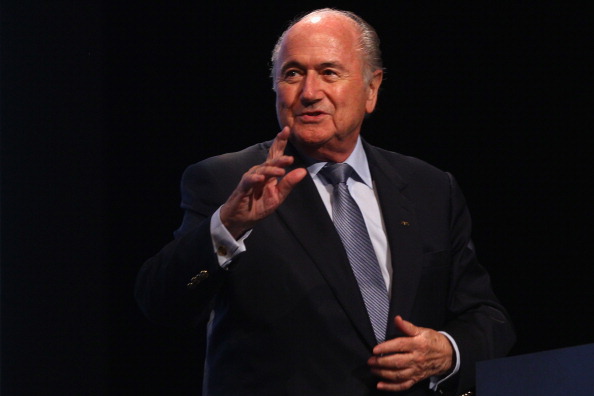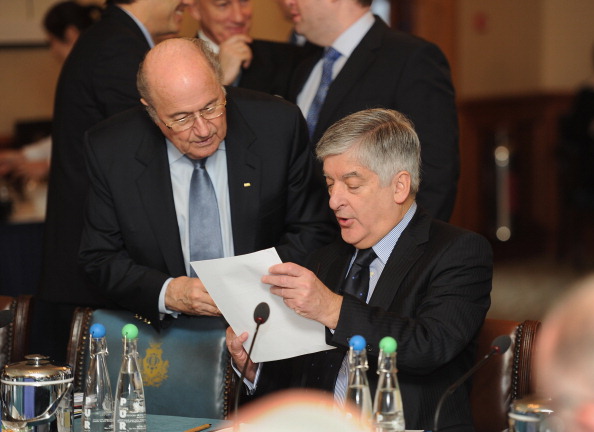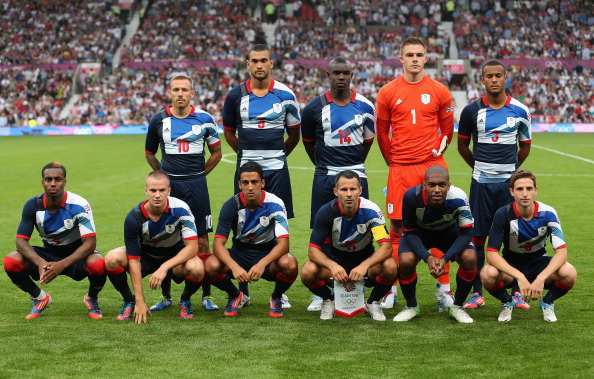It was always to be expected that the London 2102 Olympics would see a Team GB in football for the one and only time in the modern era. This was inevitable given the vehement opposition of the Scots, and the lukewarm response of the other home nations; fearful that an Olympic Team GB will mean the end of Britain’s unique position in world football, the only country with four teams.
But while Team GB in the wider football world will never come about, I get the strong sense that the London Games marked a major, indeed historic, shift in the relationship between the FA and FIFA, and the other home nations. It is, in many ways, a further development of what has been a steady progression for some time. And when the change is finally confirmed, as I expect it to be soon, it will mean that the English FA, which has often had a turbulent rollercoaster ride with FIFA, will have finally come to terms with the world organisation. In essence, what the change amounts to is that the FA no longer wants to be tied to the home nations when it comes to international football.
The first indication of this came at the FIFA Congress in Budapest back in May. The Congress, let us recall, had demonstrated the parallel world of FIFA that England has so often found difficult to deal with. This parallel world was emphasised by Blatter’s Congress performance (pictured below) – fit to rank with some of his previous Houdini-style acts. I include in this his performance in Buenos Aires in 2001. Then, having arrived at the Congress under severe attack from Lennart Johansson’s UEFA, he so smartly turned the table on the Europeans that they literally did not know what had hit them.
In Budapest, having promised radical changes at last year’s FIFA Congress, he openly declared that there was no need for change. All that happened, as he put it, was that the FIFA boat had run into choppy waters, but he was sure it could be piloted to calmer seas. What is more, it could all be done within the famous football family. The boat was perfectly sea worthy and there was absolutely no need to change the skipper.

The Budapest Congress showed how well Blatter had recovered from last year’s mauling, which held amid daily stories of FIFA corruption, suggested the Swiss had lost the bouncy, India rubber man feel he always gives. But by the end of the Budapest conference, the eternal showman that is Blatter remerged as he spoke of how everything can be solved by a handshake. He even got the delegates to shake hands and then applaud themselves at the end of the conference.
Blatter gave a similar performance when he appeared at the Kick it Out event at Wembley before Team GB’s women’s team played Brazil in an Olympic match. But if both of these events showed those of us who have followed Blatter for years that the old Sepp – who had always wanted to be a pantomime artist – was back, what was truly significant were the attempts David Bernstein (pictured below, right, speaking with Blatter, left, ahead of the IFAB meeting last March) was making to repair his bridges with Blatter.
So at the Budapest Congress, Bernstein made it clear that the FA had now formed a totally different relationship with it. A year after Bernstein had gone out on a limb and told Congress that the unopposed election of Blatter was more like a coronation, he now felt Blatter and FIFA had got the message on the issue of corruption.
At Wembley, this rapprochement between FIFA and FA was even more evident.
Now, you might have thought that the events since the Budapest Congress might have put a dampener on this growing rapprochement. The events were certainly dramatic when what had long been suspected was finally confirmed: João Havelange, Blatter’s mentor as FIFA President, and his former son-in-law and long time FIFA executive member, Ricardo Teixeira had both received bribes from ISL, FIFA’s marketing partner. What is more Blatter, probably knew about one bribe to Havelange. The judgement of the Swiss Court also made dismal reading, revealing the extraordinary lengths FIFA went to to try and prevent this truth from emerging. So much so that the body that runs world football even agreed to pay 2.5 million Swiss francs (£1.64 milliion/$2.61 million/€2.08 million) in compensation – but only on the condition that criminal proceedings against Havelange and Teixeira were dropped.

But if all this cast any shadow on the increasingly chummy relationship between FIFA and the FA, then there was no sign of this at Wembley where Blatter and Bernstein behaved like old friends. So as Blatter got all of us to shake hands, his eternal panacea for solving the game’s racism problems, Bernstein, sitting in the front row, happily joined in. Blatter had publicly exuded warmth towards the FA chairman and I am told that during the Olympics, the two men met often and even had a private lunch together.
Bernstein was so cagey about all this that he would not even tell me where he took Blatter to lunch. I am sure it was a top London restaurant, as befits the status of a man who runs world football.
And while Bernstein, normally very approachable, may have suddenly turned Trappist monk, he would have gone into the lunch well aware that the FA has suffered some collateral damage in calling for FIFA to clean up its act. It has made others in the football world respond by saying if you are talking of openness and democracy – then how about reforming FIFA’s archaic relationship with Britain? One country allowed four teams, a position as FIFA vice president and half the number of seats on the International Football Board. If the talk is of FIFA reform, then everything must be reformed, including these British privileges, which can hardly be seen as democratic.
This is where the FA’s new strategy comes in. Yes, work as hard as you can to preserve the four seats this country has in world football, but be prepared to give up the vice presidency, the home nations and the equal status at the International Board. Neither position has much helped the FA.
Equal status at the International Board has, in many ways, often damaged England. So while the FA has been eager to use technology, the reluctance of the high-ups in FIFA means the FA has been presented as Luddite.

And as for the FIFA vice presidency, the position has often been occupied by representatives from Northern Ireland and Scotland. Indeed, in the opinion of many in world football, should it become an open seat, England, with the backing of UEFA members, would have a fair chance of getting it.
The FA’s strategist hopes that by taking this course, it will nip in the bud any talk of FIFA calling for a Team GB (the London 2012 team, pictured above) in world football. It will also mean the recognition of the realities of the international game.
Of course, the home nations will not like that. But the fact is, the bond with the home nations, far from helping England, has been like a ball and chain holding back the organisation that gave the world the game. England’s present ranking of number three may be grossly overstated and reflects the curious way FIFA rankings work. But as far as world football is concerned, the reality is England is the only British nation that matters and is remotely capable of mounting a challenge to the other top countries. To go on pretending that Scotland, Wales and Northern Ireland are on a par with England is nonsense.
That may not have been the FA intention when it called for FIFA reform, but there is little doubt that it is the result we are headed for.
Mihir Bose is one of the world’s most astute observers on politics in sport, particularly football. He wrote formerly for The Sunday Times and the Daily Telegraph and was the BBC’s head sports editor.
Follow Mihir on Twitter

